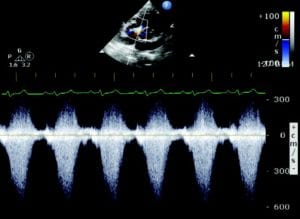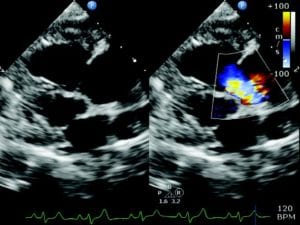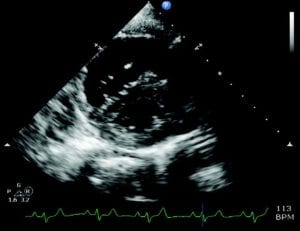Pulmonary Hypertension
Home » Pulmonary Hypertension
Pulmonary hypertension is defined as high blood pressure within the vessels of the lungs. Primary pulmonary hypertension (meaning not resulting from another disease process) is rare in veterinary medicine and is diagnosed by ruling out all other causes of pulmonary hypertension.
Most common causes of pulmonary hypertension in dogs include:
- Chronic lung disease and low blood oxygen concentration
- Chronic bronchitis (COPD)
- Pulmonary fibrosis (scarring of the lung tissue)
- Obstruction of the blood vessels
- Pulmonary thromboembolism (PTE, blood clot to the lungs)
Typically dogs with PTEs have another disease process that predisposes them to spontaneously forming blood clots within the body. These processes most commonly include a recent history of major trauma, Cushing’s disease, protein-losing intestinal or kidney disease, and cancer. - Heartworm disease
Obstruction by the worms themselves and reaction of the blood vessels to the worms’ presence. - Cancer
- Long-standing left-sided heart disease and heart failure
- Degenerative mitral valve disease
- Dilated cardiomyopathy



